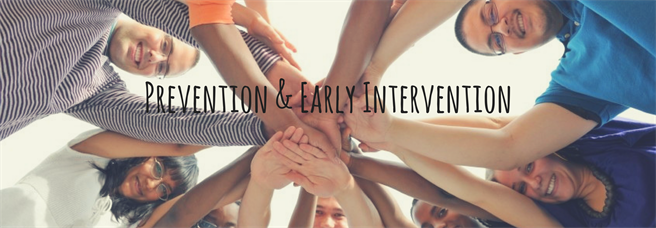| | |

Prevention & Early Intervention (PEI) strategies are designed to reduce the stigma association with mental illness, to prevent mental illness from becoming severe and disabling, and to improve timely access to services traditionally unserved and underserved populations. Services include:
- Community-Wide (Primary) Prevention Strategies
Community-wide, or universal, prevention activities reach out to the broader community to provide education about the signs of mental illness. They also link to resources available identify and treat mental illness and to fight the stigma and discrimination related to mental illness. Community-wide prevention initiatives include:
- Targeted Prevention & Early Intervention
These services include targeted activities or services to specific age groups, unserved and/or underserved populations, or at-risk communities. Targeted PEI services will identify and assess individuals showing early signs of mental illness, provide services to prevent illness from becoming severe and disabling, and provide linkages to appropriate mental health services as early as possible. Targeted PEI programs include: - The LGBTQ Outreach & Access Program
- Pregnant and Postpartum Maternal Support
- Partnership for Early Access for Kids (PEAK) for children 0-5 and their families
- School-based Mental Health Services for children ages 6-18
- Early Treatment Psychosis Program for Transition-Age Youth ages 12-25
- Prevention & Access for Seniors (PEAS) and Peer Counseling for Homebound Seniors programs for older adults
|
| | | |